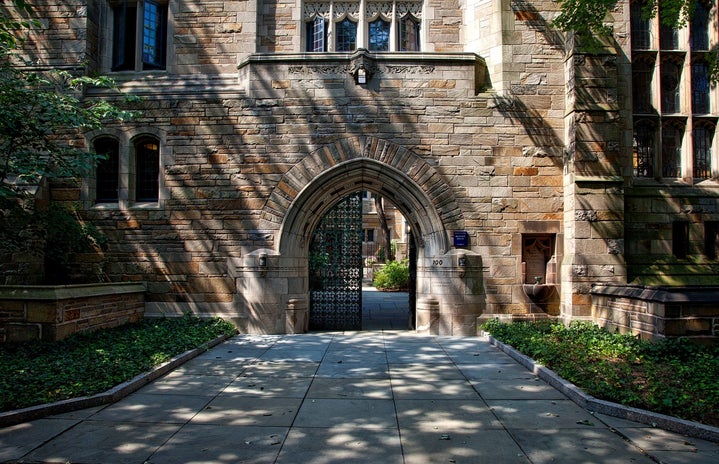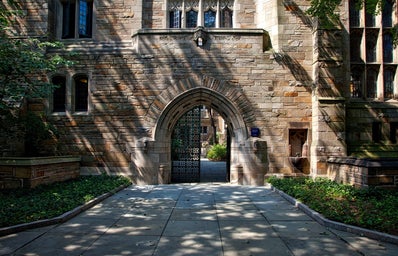We’ve all seen the recycling bins, in sets of 3, sitting in the dining halls, libraries, and most academic and student spaces. We’ve also all stood in front of those bins with a haunting sense of confusion and panic, unable to decide which category our trash falls into. You know styrofoam is bad because it clogs up landfills for hundreds of years, so does it belong in the recycling bin? Is Newcomb still using the compostable cups and disposable utensils, or is your to-go meal adding to the Great Pacific Garbage Patch? Or maybe you’re off Grounds, red solo cup in hand, slightly buzzed but still wondering the Big Question™: should I recycle this?
Many communities have websites that specifically outline what the local waste plant can and cannot recycle, as well as what to do with the items not accepted for recycling. This is great, but it gets kinda tricky when you’re in college. In an ideal world, the college and the city would have the same recycling procedures, but it’s not always true (Luckily for us, UVA and the City of Charlottesville are relatively similar). With the entire Earth and atmosphere essentially having a large-scale panic attack, the least we can do is try to recycle correctly. This will also reduce our own existential crisis as we stare at the various waste bins around Grounds.
Picture via author
Before we get into the nitty-gritty of what can and cannot be recycled, we need to clarify a common misconception. Charlottesville uses a single-stream recycling method. Many often think this means that the trash and recycling all ends up together. This is actually called mixed-waste processing, and Charlottesville does not use this method.
Recycling in the City of Charlottesville and on Grounds
DO Recycle:
- Paper products
- Paper towel and toilet paper tubes
- Newspapers and inserts
- Catalogs and magazines
- Printer, construction, and notebook paper
- Paper bags
- Cardboard (includes clean-ish pizza boxes)
- Glass jars and bottles that are green, clear, or brown
- Aluminum and tin
- Aluminum and tin cans
- Clean aluminum foil
- Empty pie plates and food trays
- Empty aerosol cans
- Plastics #1 through #7
Infographic by Summer Harvey
DO NOT Recycle:
- Trash
- Diapers
- Clothing
- Styrofoam
- Plastic bags: E.g. grocery bags. This is because they often fly out of the truck during pick up and litter the neighborhoods. Most grocery stores have plastic bag recycling boxes you can use instead. Or, better yet, use reusable grocery bags to avoid the issue altogether!
- Caps or lids: They’re too small to be identified during the sorting process. Recycle the bottle, but throw away the lid
- Food
- Compost
- Yard waste
Better World Betty, an online environmental resource based out of Charlottesville, “wishcycling” is a big problem. Wishcycling is when you don’t know if you should recycle it, so you put it in the recycling bin in hopes that it’s recyclable. Despite good intentions, this can slow down the recycling process by contaminating recyclable trash with non-recyclable trash. If you don’t know if it can be recycled, play it safe and throw it away. The New York Times put together a great article about things that shouldn’t be recycled.
Things You Want to Recycle but Shouldn’t:
-
Disposable cups: They’re often lined with a non-recyclable film to make them waterproof
-
Greasy pizza boxes
-
Bottle tops: Either keep them screwed tightly on the bottle or throw them away
-
Anything with food scraps: This includes recyclable take-out containers! Throw away or compost the food and recycle the container.
-
Plastic bags
-
Chip bags
-
Hangers
-
Light bulbs and electronics: Yes, you should recycle these, but not in your recycling bin. Many places, including the UVA libraries, have E-Cycling bins specifically for things like batteries, electronics, and lightbulbs
Recycling can be a daunting task, but the easiest way to navigate through your disposable waste is to educate yourself on the local recycling guidelines. Try to remember what can and cannot be recycled in your area, but remember: when in doubt, throw it away.


